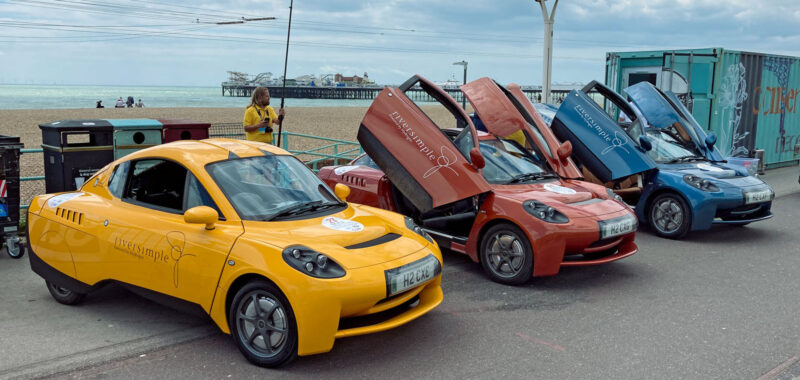Autocar and Riversimple, the UK’s only manufacturer of hydrogen-electric road cars, have launched a competition for Coventry University automotive students to design a radical supercar that might even be put into production by the Welsh-based firm.
According to the brief, the cars must be simple and elegant, incorporate a hydrogen fuel cell up front and its electronics and batteries in the rear, and be a similar size to a Ferrari Dino 246 GT – an overall length around 4.2metres, a width of 1.7metres and a height of 1.1metres.
The supercars will use the same 70kg carbonfibre chassis as Riversimple’s 655kg Rasa and must weigh no more than 620kg.
This lightweight approach, coupled with the fuel cell’s up to 270bhp output via four compact inboard motors, makes for a target 0-62mph sprint time of 3.5sec and 0-100mph of 6.2sec. Top speed will be limited to about 100mph.
Tyres will be relatively modest 185/40×17 affairs. No more rubber is needed because of the car’s extremely light weight, biased more than 50% to the rear.
These parameters are testing, admitted Riversimple CEO Hugo Spowers, but the carrot for those students is enticing.
“Most design competitions are theoretical,” he said, “but this one’s real. If our entrants come up with designs we think could work, we might well adopt them for production.”
Speaking about the car’s design, Spowers said he wants to avoid complex and aggressive, as well as retro, features, and it to not be too cab-forward (“more Miura than Countach”).
In his mind, the car uses classical gull-wing doors with a high sill for both structural reasons and easy access, but he wants to see if the student-designers have other ideas.
Entries will be judged by Andreas Mindt, Volkswagen’s design boss, later this year. Incredibly, the German participated in a similar Autocar-backed competition as a student in 1992 – then on exchange from the Pforzheim University School of Design – and had his own work published.
A production timeline has yet to be determined, but if funding – the firm is aiming to raise around £5 million from investors – arrives, it could hit the roads in just three years, said Spowers. He added that the car also “won’t be cheap”, given its rarity and sophistication.

